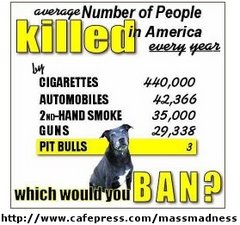Free, mandatory dog tags will take a bite out of taxpayers' pockets.
Here's an interesting publication I found in The Age Dispatch.
In London, I pay $20 annually for a cat tag for Enok. He is strickly an indoor cat, but ACC told me that "if accidently" your cat gets out, it has ID for them to return the cat home. I've always bought these cat tags since the by-law first came out quite a few years ago for every cat I've owned.
First of all, a cat collar is dangerous if it got caught on a branch or anything and could choke your cat. Now they make collars that if that were to happen, it has a release and would fall off the cat.
All this is well and fine, but if kitty did happen to disappear, how is ACC going to find your cat without the tag?
Not so long ago, I coluldn't find Enok anywhere in my small apartment. I searched everywhere, calling for him to no avail.
I searched all 3 floors of the halls in the building and even knocked on doors. NO ENOK!
I searched outside EVERYWHERE and asked neighbours...no Enok!
I was about to make some lost cat posters, but wanted to call ACC first. I was told that unless cats are microchipped or tattooed, they do not even take information on your cat.
I had just hug up the phone and guess who came out to see me? You guessed it. Enok was napping somewhere while I was franticly trying to find him. BratCAT!
My point is if that's the case, why are we paying a yearly fee for a worthless cat tag?
Dog licensing I totally understand and approve of...even though Shasta is also microchipped. Manditory for the Pit bull breeds.
As far as taxpayers paying for other peoples pooches, I believe that should be up to the responsible dog owner or they shouldn't be allowed a dog.
There are resourses that people can turn to that may be low income and not able to pay the full ammount, but can make payments back as can be afforded. I see no reason why taxpayers should have to pay unless this is towards a rescue or animal care group.
Free, mandatory dog tags will take a bite out of taxpayers’ pockets
Posted By BY DEBORA VAN BRENK, Sun Media
Free, mandatory dog tags will take a bite out of taxpayers’ pockets as Strathroy-Caradoc becomes the first in Ontario to link the full cost of animal control to everyone.
“Everybody pays. No matter whether you have a pet or never had a pet, you will use this service,” whether it’s to retrieve a lost cat or complain about a barking dog, said Strathroy-Caradoc Mayor Mel Veale.
“It's a total municipal responsibility for animal control.”
Now, tags cost $20 to $35 a year per dog, but animal control officer Gertie Dieleman often has had to make as many as four visits to collect fees on one license. It’s both a waste of her time and a confrontation waiting to happen, Veale said.
“I didn’t hire her to be a (bill) collector. I hired her to protect the welfare of animals,” he said.
The tags will still be mandatory for dogs and, in a new step, will be voluntary for cats starting Jan. 1, 2010.
Additional cost to the taxpayer will be about $7 per household. Each already pays about $2.50 a year to cover animal control costs not covered by dog-licensing fees.
“Boy, it’s going to take a load off my back,” said Dieleman, who also operates Animal Care Centre Lobo. “For over 30 years I’ve been licensing dogs and it’s been great for 80 percent to 90 percent of dog owners.”
For a small minority, though, she has on occasion had to call police for support.
“I have been quite intimidated in situations where I was worried for my safety.”
She said council’s decision is a philosophical shift that ensures more animals can be found and returned if lost or hurt.
Names, addresses and breed types will be entered into the shelter’s database so the pet can be returned to its owner if the animal has a tag, she said.
Administrative costs should also drop because people will be able to apply for tags online and at various stores, rather than Dieleman having to visit and collect from each delinquent pet owner. The tags will also be valid for the pet’s lifetime instead of needing annual renewal.
There are 3,000 licensed dogs and 6,000 households in the municipality. Dieleman said it’s likely that eliminating tag fees will bring to light more dogs that have been unlicensed.
The total cost of animal control there is about $85,000 a year.
Those who argue they shouldn’t pay because they don’t have a pet are overlooking all the other things they pay for – skateboard parks, traffic lights – that may apply only to some residents but are also for the general good, said township clerk Angela Toth.
Other elements of the animal control bylaw, such as muzzle orders and the process for complaining about barking dogs, remain in effect, she said.
Strathroy-Caradoc Council has debated the issue for about two years. The bylaw passed in a special committee-of-the-whole session Monday night by a 5-3 vote.
Veale said some other municipalities have taken on licensing, but none that he knows of has decided to spread the costs among all taxpayers.
In London, about half the cost of animal control comes from dog-license fees and half from taxpayers, said Jay Stanford, head of environmental services.
Rather than drop dog fees, the city is looking to expand its reach with better ways to control cat numbers. Mississauga, for example, now has a bylaw requiring cats to be microchipped so they can be returned to their homes if found.





























